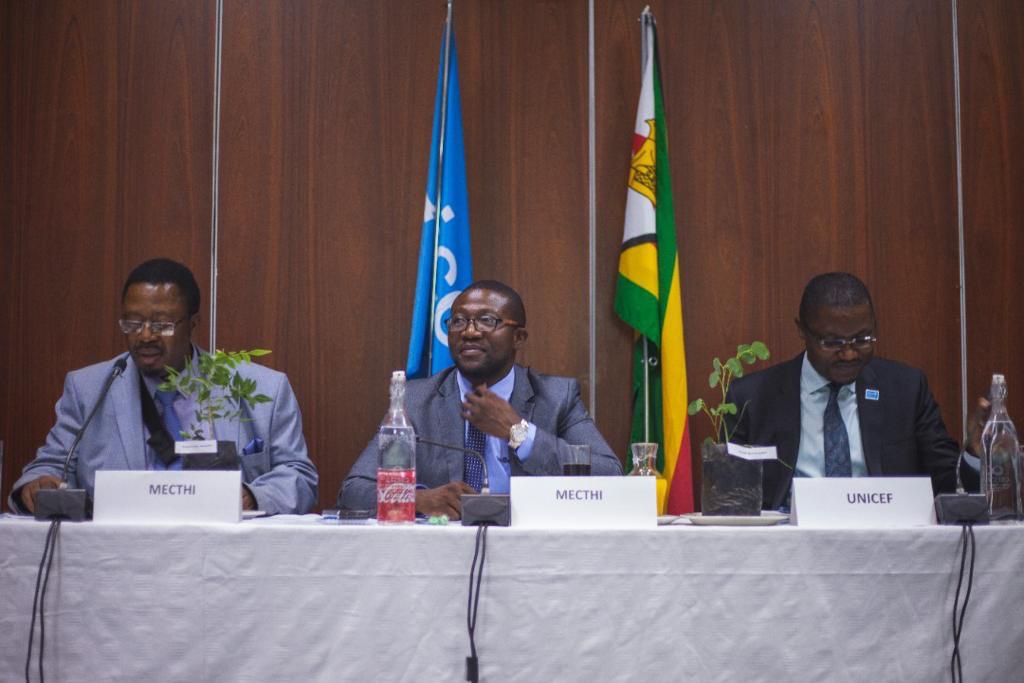|
Getting your Trinity Audio player ready…
|
By Elvis Dumba
Harare – Stakeholders are calling for greater involvement of children and young people in strategies and actions meant to counter climate change-induced challenges.
Various stakeholders from the government, environmental organisations, and UN agencies met yesterday during a high-level dialogue on climate change ahead of the 27th Conference of the Parties of the United Nations Framework Convention on Climate Change (UNFCCC) COP27, which will be held from 6 to 18 November 2022 in Sharm El Sheikh, Egypt.
During the meeting which tackled environment, climate, energy, and children issues, a strong call to put children at the heart of strategies and actions on climate change issues was made.
Minister of Environment, Climate, Tourism, and Hospitality Industry Hon Mangaliso Nqobizitha Ndlovu said the protection of children from the impacts of climate change and pollution cannot be over-emphasised.
He said there should be specific financing for children’s long-term resilience building and capacitation in reducing pollution from climate change impacts.
“The need to protect children from the impacts of climate change and pollution cannot be overemphasized. We also need to bring to the fore, specific financing for children to enable long-term resilience building, enhance capacities for adaptation, and reduce emissions and pollution. A national initiative of Clean Green Zimbabwe, being launched today, to build climate resilience among the children and communities, will be key towards such efforts,” he said.
The climate change crisis has become a child rights issue the world over and in Zimbabwe. Climate change has been threatening children’s right to survival and their ability to thrive. Children’s increased exposure to pollution and flooding has resulted in increased respiratory and diarrheal disease and higher rates of malnutrition.
During the meeting, participants called for the need to prioritize children’s rights in the efforts to adapt to climate change and to protect the environment.
They said children must be educated on how to adapt to the immediate and future challenges arising from climate change and empowered to play a key role in ensuring environmental sustainability and resilience. Children must be supported to voice their needs in relation to climate change with decision-makers urged to listen and act on children’s concerns.
The government of Zimbabwe with its partners such as UNICEF developed a Clean Green Initiative.
Unicef Zimbabwe representative Dr. Tajudeen Oyewale commended the Zimbabwean government for coming up with the Clean Green Zimbabwe Initiative which will assist communities to be climate resilient by investing in the younger generation.
“While the child-sensitive nature of Zimbabwe’s National Climate Change Response Strategy is laudable, there is no time to waste in advancing key actions – in collaboration with all partners. I commend the Government of Zimbabwe for putting in place the Clean Green Zimbabwe Initiative aimed at strengthening community capacity to be climate resilient by investing in children and young people and mobilizing actions in communities and in schools. I am also pleased to release the UNICEF Zimbabwe Climate, Energy, Environment and Children Strategy as our commitment to support the Government and work with partners towards climate action for children and young people,” the Unicef country boss said.
Clean Green Zimbabwe aims among other things to increase the capacity of local institutions and communities to respond to local needs induced by climate change, basic knowledge, skills, and critical behaviors of children, families, and communities for climate resilience and, promote the beautification of cities, schools, and neighborhoods as action toward greening. The initiative is in line with the Government priorities of city beautification and rural reforestation.
The first phase of the initiative will start in 2023 to create awareness and engage the children, youth, and communities and pilot different approaches before being scaled up by the government systems from 2024 onwards.
The disastrous impact of Cyclone Idai in 2019 and the recent droughts is evident that Zimbabwe is prone to more climate-induced shocks with increasing intensity and frequency.
Attendees of the high-level dialogue meeting agreed on the sense of urgency to address the climate change challenges in Zimbabwe and for all stakeholders to work together for children in implementing climate change mitigation and adaptation strategies in the country.
